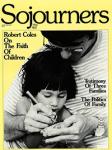It was a great trip. Five cities in six days, and my first stop was Milwaukee.
One of the highlights of the time was dinner the first night with Myles Horton, founder of the Highlander Folk School. For more than 50 years now Myles has been educating for social change, helping ordinary men and women to reclaim their own lives and history.
You may not have heard of the Highlander Folk School, but everyone has heard of the people, movements, and music that have come through it. Rosa Parks was there for a conference just a short time before she sparked the Montgomery bus boycott. Martin Luther King, Jr. was there. Literally thousands of union leaders, civil rights workers, and community organizers have come through Highlander. Even "We Shall Overcome" was written at this extraordinary school in the hills of Tennessee.
Myles was a "resident teacher" for a month in Milwaukee when I passed through. Characteristically, he is a story-teller, and a good one. His are great stories, full of faith, courage, and human struggle. Being with such a man was both a great delight and deep honor.
The dinner was too short. Soon we were off to a Lenten talk for the Catholic parishes of Milwaukee. The crowds were large and eager to dig deeper into the gospel message of peace for our dangerous times. It felt more like a revival than anything else, an old-style camp meeting--for peace. Here was a church filled with citizens of Milwaukee, from the bishop to the Catholic workers, the district attorney, and the city cop. They were older than such crowds used to be. They were family people who spoke to me about their children. Many of them were readers of Sojourners. It's always like meeting old friends, even the first time.
The next stop was Portland, Oregon, for a weekend conference sponsored by the World Peacemakers. Again, the large church was filled--with evangelicals, Catholics, Mennonites, Quakers, and Protestants of all denominations. A group of four people had decided to have this conference and had turned out the largest gathering for peace ever held in Portland.
Ron Coleman drove me around most of the weekend. He and his wife, Jenna, had made the decision that Ron should quit his job as a scientific analyst at the SAC (Strategic Air Command) air base in Omaha. Before moving to Nebraska, he had been a crew commander at the Titan II missile base in Tucson, Arizona. Finally his Christian faith led him to leave the air force and take up a vocation of peacemaking.
Jim Douglass came down from Ground Zero for the Portland conference. He, Shelley, and their son, Thomas, live at the edge of the Trident submarine base at Bangor, Washington, and for years have been at the heart of the Trident campaign there. Jim shared exciting plans about a peace flotilla of small boats being put together for the arrival of the first Trident submarine at the base this summer.
Just a few months ago, Archbishop Raymond Hunthausen referred to the Trident submarine base as the "Auschwitz of Puget Sound." Now, the moral and political issues surrounding the presence of that base have become topics of vigorous conversation throughout the Seattle area.
After a chapel service at Seattle Pacific University and a public lecture, I stopped in Takoma to spend the afternoon and evening with the people from the Second Mile community. One of them, Ted Brackman, had been part of our original group at Trinity Evangelical Divinity School near Chicago that eventually became Sojourners community. The Second Mile community has been helping to build a growing community network in the Pacific Northwest. Wherever I go, I love to spend time with the small communities of faith whose vision and experience is, I think, at the heart of genuine renewal in the church today.
The last stop was Missoula, Montana, for a day's rest before returning home. I stayed with Wes and Karin Granberg-Michaelson, who were a part of Sojourners community. Many of you will remember Wes from the pages of Sojourners. They and their new five-month-old son, Jon Krister, are doing very well indeed in their new home. They are working on issues of health, healing, and what Wes calls "earth-keeping." They are a part of the Community Covenant church, part of our communities network. Wes and Karin introduced me to my first experience of a hot springs. What a way to end a long trip!
The trip felt like a revival stump for peace. I have had many thoughts about the need for preaching that would make the gospel known in our historical context, taking a biblical and evangelistic approach with a strong emphasis on conversion. I'm drawn these days to preaching events more than to conferences or workshops; to revivals more than seminars, sermons more than lectures.
It is time to make preaching the gospel publicly controversial again. We need the kind of preaching that would call people away from the ruling American myths, illusions, and lifestyle.
A whole new level of public activity for the sake of the poor and for peace could emerge from such preaching, which has a time-tested tradition with deep roots in American history. Perhaps it is time to reclaim the revival tradition and apply it to the times in which we live, which so desperately need the real preaching of the word of God.
Jim Wallis was editor-in-chief of Sojourners when this article appeared.

Got something to say about what you're reading? We value your feedback!
